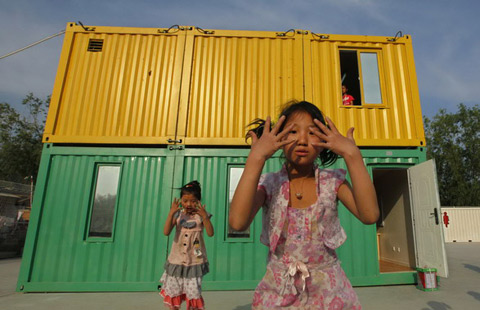Move colleges out of capital
Updated: 2014-04-11 07:15
(China Daily)
|
|||||||||||
That Beijing, Tianjin and Hebei province are working on a joint development plan to ease the population pressure on the capital and boost the overall development of the surrounding areas, has grabbed much public attention lately.
But what kind of enterprises and institutes in the capital should be relocated to these two areas has become a central concern of the plan, said a commentary in Global Times Chinese Edition on Thursday.
The plan may remind us of the past practice of developing satellite towns around a municipality. Given the relatively low property prices, satellite towns around Beijing basically function as dormitory communities as they provide no job opportunities.
People prefer megacities such as Beijing because they offer more employment options and easy access to various public facilities and services. In fact, small- and medium-sized towns in some highly urbanized economies can also provide such convenience. These places have something in common as they are ususally college towns with a large student population that pervades the local economy and social life.
College towns can have an advantage in retaining talent, as a new industry is likely to come into being if they can attract those who start up a business after graduation.
There are up to 100 institutions of higher learning and many more research institutes in Beijing, and many are actually located in the same district. The relocation of them would be conducive to their own expansion and would also enhance the competitiveness of their new bases such as the many counties and townships in neighboring Hebei province.
It is not just Beijing. There are some 2,000 institutions of higher learning in China, and most of them are in the municipalities and provincial capitals. There are also about 2,000 county-level divisions nationwide, but only a few are home to a college or university. One example is the Yangling township in the city of Xianyang, Shaanxi province, where a university of agriculture and forestry is located and so are several other institutes of agricultural science. They form part of a State-level agricultural science and technology park. Thanks to that, Yangling has emerged as a hub of agricultural science in Northwest China that integrates education and research with industrial needs. This would not have happened if the university in question was first based in the provincial capital.
Related Stories
Baoding prepares for functional transfer 2014-03-27 10:30
NDRC denies Baoding chosen as auxiliary capital 2014-03-20 16:06
'No talk of deputy political center' in Baoding 2014-03-20 07:41
Baoding upgrading industry to combat pollution 2014-03-11 15:16
Today's Top News
Putin instructs lenient gas policy with Ukraine
World leaders join Weibo
Campaign to save Moscow tower
21 injured in US school knife attack
China to spend more on railways
G20 to focus on boosting economy, not Crimea
RMB to be global reserve currency
US slashes Iran's pick for UN envoy
Hot Topics
Lunar probe , China growth forecasts, Emission rules get tougher, China seen through 'colored lens', International board,
Editor's Picks

|

|

|

|

|

|





